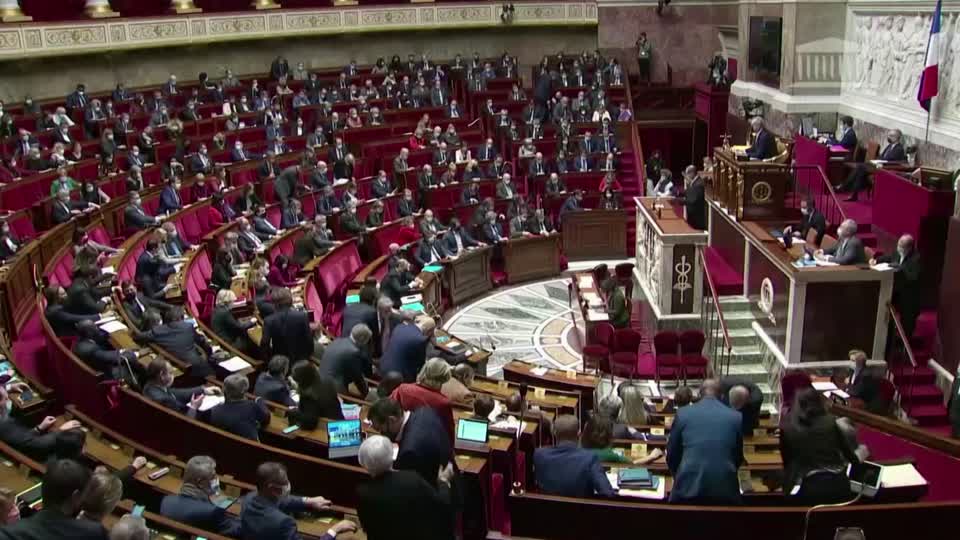The National Assembly of France on Tuesday passed a controversial bill aimed at curbing the rise of Islamism.
The so-called anti-separatism bill strengthens the state’s oversight of mosques, schools and sports clubs.
It also includes tough new measures against online accounts for violent activities and to ward off practices such as forced marriages and virginity tests.
The bill was put forward by President Emmanuel Macron who said it would strengthen the country’s secular principles.
His party said the need for such a law was highlighted by the murder of a schoolteacher in Paris in October last year.
Samuel Paty was beheaded by a teenage Islamist after displaying cartoons of the Prophet Mohammad in a class on free speech.
Less than two weeks later, a churchwarden and two worshipers were killed in a basilica in Nice by a Tunisian Islamist.
Guillaume Vuilletet is from the president’s ruling party.
“The struggle against ‘separatism’ has long been a necessity of national importance. The tragedy (the assassination of the Islamic teacher Samuel Paty) made it an urgent moral necessity. And what is in this bill? First, it guarantees our need for “secularism after great progress in our public action. Secondly, it protects the victims of ‘separatism’, whether physically or online.”
Tuesday’s vote in the lower house was the first obstacle to a bill that was controversial left and right.
Some on the left say it is an attack on France’s five million Muslims, while critics on the right say it is too weak.
Yet it passed with 347 votes in favor of 151 against.
The legislation is now moving to the Senate, where the center-right opposition dominates.
The section is seen as the key to Macron’s re-election hope for 2022.
French identity and internal security are expected to be the central issues in the presidential election.
Video transcription
– [SPEAKING FRENCH]
– The National Assembly of France on Tuesday passed a controversial bill aimed at curbing the rise of Islamism.
The so-called anti-separatism bill strengthens the state’s oversight of mosques, schools and sports clubs. . It also includes tough new measures against online accounts for violent activities, such as practices such as forced marriages and virginity tests.
The bill was put forward by President Emmanuel Macron, who said it would strengthen the country’s secular principles.
His party that the need for such a law is emphasized by the murder of a schoolteacher in Paris in October last year.
Samuel Paty was beheaded by a teenage Islamist after displaying cartoons of the Prophet Mohammad in a class on free speech.
[GUN SHOTS]
Less than two weeks later, a churchwarden and two worshipers were killed in a basilica in Nice by a Tunisian Islamist.
Guillaume Vuilletet is from the president’s ruling party.
GUILLAUME VUILLETET: [SPEAKING FRENCH]
INTERPRETER: The struggle against ‘separatism’ has long been a necessity of national importance. The tragedy made it an urgent moral necessity. And what then is in this bill? First, it guarantees our need for secularism after great progress in our public action. Second, it protects victims of ‘separatism’, whether physical or online.
– Tuesday’s vote in the lower house was the first obstacle to a bill that was controversial left and right.
Some on the left say it is an attack on the five million Muslims in France, while critics on the right say it is too weak.
Yet it passed with 347 votes in favor of 151 against.
The legislation is now moving to the Senate, where the center-right opposition dominates.
Its progress is seen as the key to Macron’s 2022 re-election hope.
French identity and internal security are expected to be the central issues in the presidential election.
